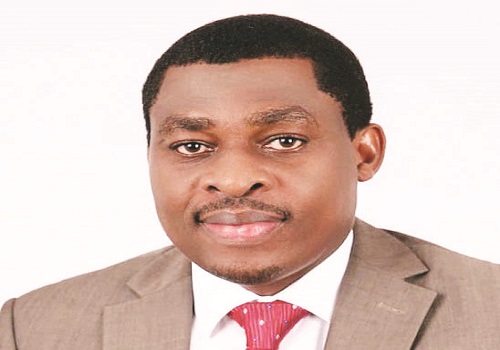
The Legal Practitioners Privileges Committee (LPPC) has partnered with a legal-tech company, LawPavilion, to automate the application process for the conferment of the rank of Senior Advocate of Nigeria (SAN).
Chief Justice of Nigeria Ibrahim Muhammad said this while swearing in 72 lawyers elevated to the rank.
He said: “Most of us here are aware of how tedious the process of conferring the coveted rank of SAN on aspiring applicants has been for the applicants, the LPPC and the Secretariat.
“Thankfully, a new era has come now, as the LPPC has taken a giant step in pioneering the digital transformation of the legal industry, starting with the SANship conferment process, by partnering with the foremost LegalTech Solution Company – LawPavilion to automate the application process, end-to-end.
“Consequently, from next year, application for the conferment of the rank of SAN will no longer be done manually but digitally.
“The automation of the application process will ensure that the application and conferment process is seamless, faster – as it requires lesser paperwork, and easier for the Secretariat and the LPPC.
“Also, the automation will make it easier for returning applicants as they will not have to re-submit documents that they may have submitted in their earlier application.
“I am confident that this move will put the Nigerian legal industry in the same pedestal as the legal industries of other climes where technology has been embraced to make processes faster and more efficient.”
LawPavilion Chief Executive Officer, Mr. Ope Olugasa, expressed his gratitude to the LPPC for allowing the firm to be part of the giant stride.
He said: “The essence of digitalisation is mainly to ensure efficiency by reducing time, effort and cost as each task is performed seamlessly online, at any time and from anywhere, whilst eliminating human error.
“With the digitalisation and automation of the application process, applicants will have access to the portal any time of the day throughout the application window – whether during the day or at night.
“Because it is an end-to-end digitalisation, applicants can obtain their forms, fill the forms and upload the usually humongous relevant supporting documents online without having to print tons of documents, thereby saving cost and time.
“With this automation, returning applicants will not have to re-submit documents that they may have submitted in their earlier application as they will have their account where their documents will be archived.
“Surely, Training sessions and videos will be organised to handhold applicants in going through the process.”
According to Olugasa, the automation will help the secretariat and members of the LPPC to carry out their functions more effectively and efficiently.
He said: “Before now, the secretariat and members of the LPPC have to manually sift through every application and accompanying documents for verification and compliance. This is by all standards cumbersome.
“For instance, there were about 159 this year alone; you can imagine the volume of documents that the secretariat and members of the LPPC had to deal with manually, given the number of supporting documents expected of each applicant.
“But with this automation, they will be able to do so much in such a little time as certain checklists have been put in place to ensure compliance.
“As a result, they will have more time to focus on the more cerebral part of the application process.
“And what is more, this automation will reduce human contact to the barest minimum; helping everyone to stay safe in compliance with the requirements of the Covid-19 precautions in the new normal.
“The implication is that legal practitioners must begin to embrace digital transformation in their legal service delivery.
“They should begin to optimise their internal processes through the efficient use of technology, for to refuse or ignore to do so may be to lose touch with the expected topnotch legal service delivery that their clients will now begin to require of, and demand from them.”







